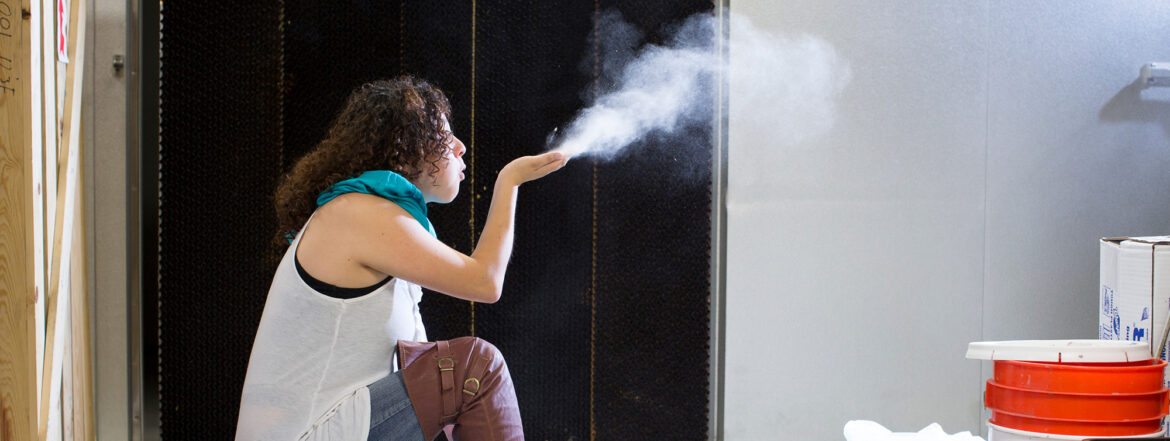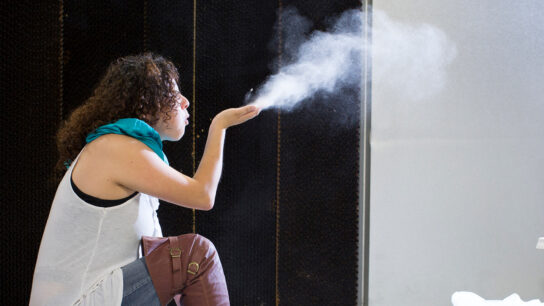What They’re Reading: RRG on Feminist and Social Justice Science Methods, Fall 2018
Lab in Residence: Collaboratory in Feminist and Social Justice Science Methods
This culture lab reworked the workshops of technology by gathering resources to plan and troubleshoot a functional model for a “feminist science shop.” The feminist science shop is a space for working out feminist approaches to building communities around material and political problems. Working together, scholars, artists, activists, and others will form relationships, imagine frameworks, and build tools to work towards a more just politics of knowledge production.
Here is what they were reading:
https://criticalrefugeestudies.com/
This website provides a model of feminist and social justice scholarship and thinking on refugees. It shows us how to center the voices and narratives of refugees and to approach refugeehood as a lens rather than as an object of study.
Erdrich, Heid. “Microchimerism,” “Upon Hearing of the Mormon DNA Collection,” and “Traffic.” Selected poems from Cell Traffic, 11-13, 47, 51. Tucson: University of Arizona Press, 2012.
Erdrich is an indigenous poet (Ojibwe) who writes on epigenetics and intergenerational relationality. We arrived to her work by way of the STS-inflected theorizing of scholar Ryan Rhadigan. We drew on this poem to engage what it might look like to take science seriously while provincializing its authoritative structures of claims-making.
Nagar, Richa. “Reflexivity, Positionality, and Languages of Collaboration in Feminist Fieldwork.” In Muddying the Waters: Coauthoring Feminisms Across Scholarship and Activism, 81-104. Urbana, Chicago, and Springfield: University of Illinois Press, 2014.
Nagar offers notions of “co-authoring feminisms” and “studying-with” to consider the depth of trust and reciprocity necessary to contravene the distancing and hierarchical conventions of ethnographic research. She offers material examples and counterpractices for research, collaboration, and the co-creation of knowledge that guide our thinking about accountability in collaborative research—particularly in navigating the shifting dynamics of power across space, institutions, languages, and communities.
Nye, Coleman and Sherine Hamdy. Lissa: A Story of Medical Promise, Friendship and Revolution. University of Toronto Press, 2017.
Since all of us are interested in collaborations within and outside academia, this graphic novel (a collaborative project between two anthropologists and two graphic artists) offers one model for both collaboration and for thinking about ways of representing academic work to a broad, public audience without reducing or losing the complexity of ideas. The graphic novel form also encourages perverse readings of critical medical anthropology ideas and reminds us that scholarship does not always have to be pedantic.
Bonds, Anne, Jennifer Hyndman, Jenna Loyd, Becky Mansfield, Alison Mountz, Margaret Walton-Roberts. “For Slow Scholarship: A Feminist Politics of Resistance through Collective Action in the Neoliberal University.” In ACME: An International E-Journal for Critical Geographies, 2015.
Feminist collaboration recognizes that all of us come into a project from an ecology. A feminist collaboration is not just project oriented, but invests in helping sustain the ecologies that support its members (who have different responsibilities, commitments, abilities, capacities, etc.). This is a different model of collaboration that must be distinguished from that of the neoliberal university. Supporting collaborators as part of their ecologies requires slow scholarship.
Weasel, Lisa H. “Laboratories Without Walls: A Personal Path to Feminist Science Action.” In Feminist science studies: A new generation. New York: Routledge, 2001.
Weasel writes about her work as a feminist academic in the Netherlands to convene students, scientists, feminists, and broader communities to work on problems requested by communities. Our group took inspiration from Weasel’s desire to reconfigure scholarly work in collaboration with others, but also sought models of sociality beyond service to communities.
Community Based Participatory Research is an approach drawn from public health that works to redress power imbalances in the provision of health and care. Our group took inspiration from Wallerstein’s and Duran’s work to hold and justify space within institutions to practice research that counters institutionalized hierarchies and forms of domination.
Wallerstein, Nina, and Bonnie Duran. “The Theoretical, Historical, and Practice Roots of CBPR.” In Community Based Participatory Research for Health, 25–46. San Francisco, CA: Jossey-Bass, 2008.
Wallerstein and Duran trace overlapping and divergent politics of action research traditions, especially consensus and Southern strands of CBPR. Southern strands work through problems of hybridity and domination in knowledge, settler colonial legacies, racism, and processes of accumulation.
Wallerstein, Nina, and Bonnie Duran. “Community-Based Participatory Research Contributions to Intervention Research: The Intersection of Science and Practice to Improve Health Equity.” In American Journal of Public Health 100, no. S1 (April 1, 2010): S40-S46.
Wallerstein and Duran make the case to public health researchers for building trust over long durations and ceding analytical authority to communities represented and implicated by the knowledge coming out of the collaboration.
Lee, Pam Tau, Niklas Krause, Charles Goetchius, J. M. Agriesti, and R. Baker. “Participatory Action Research with Hotel Room Cleaners: From Collaborative Study to the Bargaining Table.” In Community Based Participatory Research for Health, 390–404. San Francisco, CA: Jossey-Bass, 2003.
This paper shows the trajectory of a CBPR project in collaboration with hotel workers, establishing strong data to support workers’ knowledge about their job conditions and taking that knowledge all the way to the bargaining table through a union.


